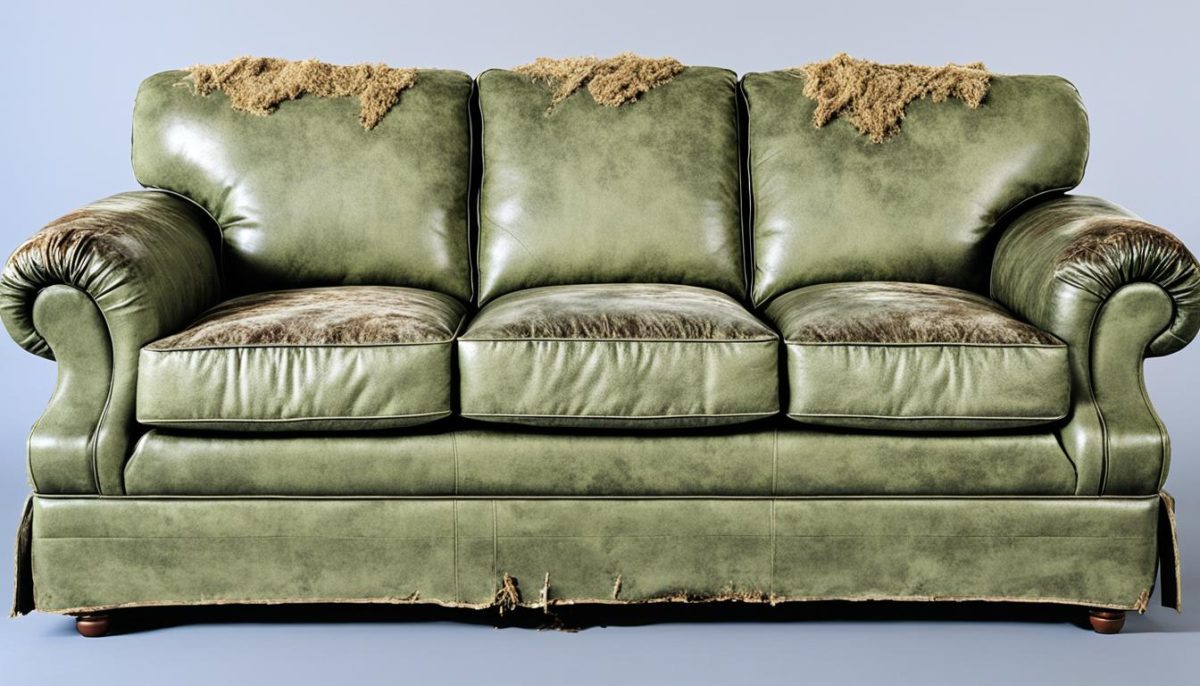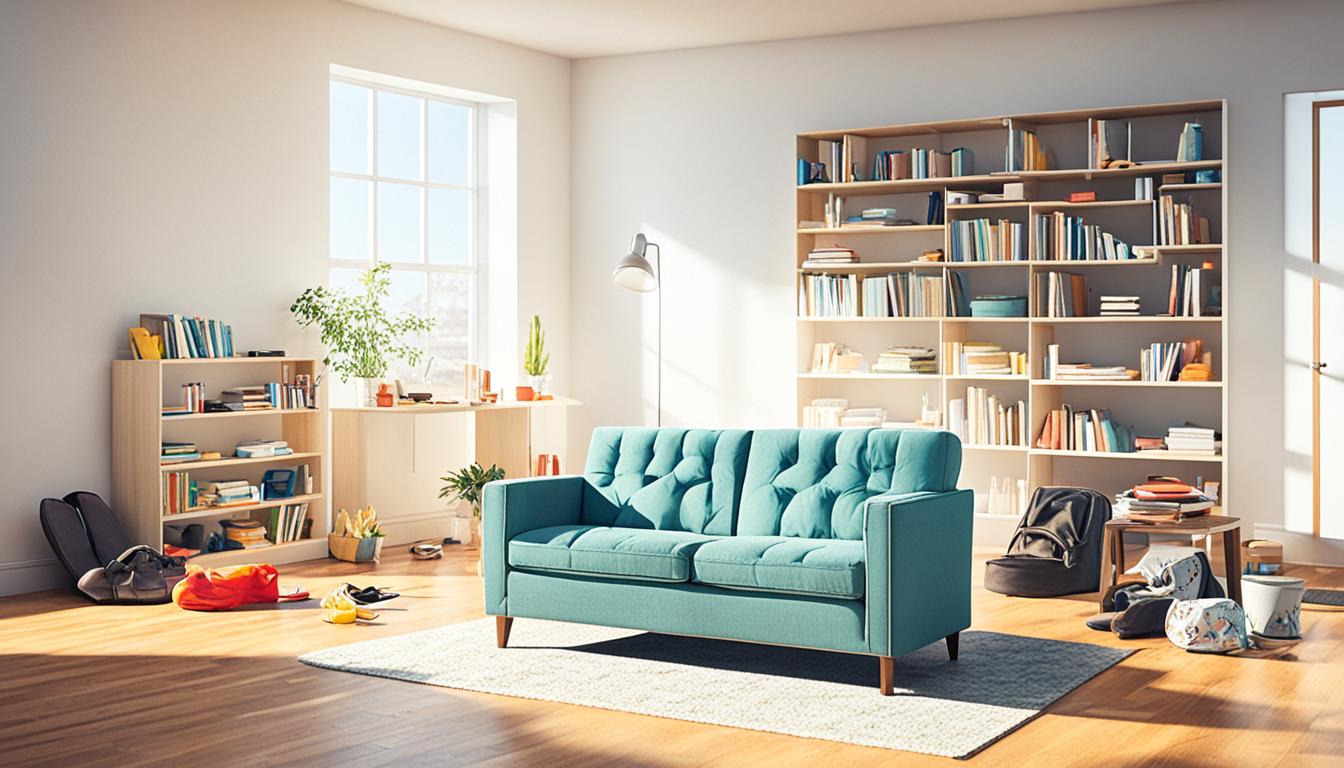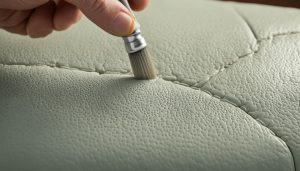When it comes to purchasing a couch, one of the common questions that arises is how long it should last. After all, a couch is a significant investment, and you want to ensure that you get the most out of your purchase. Understanding the average lifespan of a couch and the factors that can affect its longevity is key to making an informed decision.
So, how long should a couch last? The answer may vary depending on several factors. Factors such as the quality of materials used, construction techniques employed, usage habits, and maintenance practices can all play a role in determining the lifespan of a couch.
Here at XYZ Furniture, we believe in providing high-quality couches that are built to stand the test of time. Our sofas are crafted using premium materials and expert craftsmanship, ensuring durability and longevity.
In the upcoming sections, we will explore in detail the factors that affect the lifespan of a couch and provide practical tips on how to extend its longevity. We will also discuss when it may be time to replace your couch and guide you in choosing the perfect replacement. So, stay tuned to learn everything you need to know about making your couch last for years to come!
Factors Affecting Couch Lifespan
When it comes to the lifespan of a couch, various factors can significantly impact its durability and longevity. Understanding these factors is essential for both furniture manufacturers and consumers alike. In this section, we will explore the key elements that can influence how long a couch will last.
Quality of Materials
The quality of materials used in the construction of a couch plays a crucial role in determining its lifespan. High-quality materials, such as solid hardwood frames, durable upholstery fabrics, and resilient cushioning, can contribute to a longer-lasting and more resilient couch. On the other hand, lower-quality materials may result in premature wear and tear, leading to a shorter lifespan.
Construction Techniques
The construction techniques employed during the manufacturing process can also affect the lifespan of a couch. A well-constructed couch with strong joinery and reinforced corners will be more resistant to the stressors of regular use, ensuring it remains sturdy and durable over time. Conversely, couches with inferior construction techniques may be more prone to damage and deterioration.
Usage Habits
The way a couch is used can have a significant impact on its lifespan. Factors such as the amount of weight regularly placed on the couch, the frequency of use, and the level of care taken in maintaining it can all influence how long the couch will remain in optimal condition. Avoiding excessive jumping, rough handling, and prolonged exposure to direct sunlight can help extend the life of a couch.
Maintenance Practices
Proper maintenance practices are essential for preserving the lifespan of a couch. Regular cleaning, spot treatment of stains, and appropriate measures to protect the couch from spills, pet damage, and excessive dirt can all contribute to its longevity. Additionally, following the manufacturer’s recommended maintenance guidelines, such as rotating cushions or flipping them regularly, can help distribute wear and maintain the couch’s overall comfort.
“The quality of materials, construction techniques, usage habits, and maintenance practices all play a vital role in determining the lifespan of a couch.”
By considering these factors and making informed choices, you can ensure that your couch remains comfortable, functional, and aesthetically appealing for years to come. The next section will discuss practical tips and advice on how to extend the lifespan of your couch.

| Factors | Affects on Couch Lifespan |
|---|---|
| Quality of Materials | High-quality materials contribute to a longer lifespan, while lower-quality materials may result in premature wear and tear. |
| Construction Techniques | A well-constructed couch with strong joinery and reinforced corners will be more durable, while inferior construction techniques may lead to damage and deterioration. |
| Usage Habits | The way a couch is used, including the amount of weight placed on it and the frequency of use, can impact its lifespan. |
| Maintenance Practices | Proper maintenance, such as regular cleaning and protection from spills, can help extend the lifespan of a couch. |
Extending the Lifespan of Your Couch
In order to maximize the lifespan of your couch and keep it looking and feeling its best, it’s important to implement proper cleaning and maintenance routines. By following a few simple steps, you can ensure that your couch remains in excellent condition for years to come.
1. Regular Cleaning
One of the key factors in extending the lifespan of your couch is regular cleaning. Vacuuming your couch weekly with a brush attachment will help remove any dust, dirt, or debris that may accumulate over time. Additionally, spot cleaning any spills or stains as soon as they occur will prevent them from causing long-term damage.
2. Proper Maintenance
Performing regular maintenance on your couch can also help extend its lifespan. Fluffing and rotating the cushions regularly will prevent sagging and uneven wear. Additionally, if your couch has removable cushion covers, washing them according to the manufacturer’s instructions will keep them looking fresh and prevent odors.
3. Periodic Inspections
Periodically inspecting your couch for any signs of damage or wear is essential in addressing issues promptly. Check for loose or broken springs, loose stitching, or worn-out padding. If you notice any problems, take immediate action to prevent them from worsening.
4. Protecting from Wear and Tear
Protecting your couch from excessive wear and tear can significantly extend its lifespan. Using armrest covers or furniture throws can help protect vulnerable areas from stains, spills, and scratches. Placing felt pads on the bottom of couch legs will also prevent floor damage when moving the couch.
5. Prompt Repairs
If you notice any minor damages on your couch, such as a loose button or a small tear, it’s important to address them promptly. By fixing minor issues as soon as they arise, you can prevent them from escalating into more significant problems that may require professional repairs or even replacement.
Remember, taking good care of your couch not only prolongs its lifespan but also enhances your overall living space by ensuring a clean, comfortable, and aesthetically pleasing seating arrangement.
By following these tips and incorporating them into your regular couch maintenance routine, you can extend the lifespan of your couch and enjoy its comfort and style for years to come.
When to Replace Your Couch
Knowing when it’s time to replace your couch is crucial for maintaining a comfortable and safe seating arrangement. Over time, wear and tear can take a toll on even the most durable couches, diminishing their quality and comfort. In this section, we will discuss the signs that indicate your couch has reached the end of its lifespan.
One of the key indicators that it’s time to replace your couch is noticeable structural damage. If you start noticing sagging or creaking when you sit down, it may be a sign that the couch’s frame is weakened or broken. Continuing to use a couch with structural issues can compromise your safety and lead to discomfort.
Worn-out cushions are another sign that it’s time for a new couch. Over time, cushions can lose their shape and support, making them less comfortable. If you find yourself sinking into the couch or feeling the springs underneath, it’s a clear indication that the cushions have reached the end of their lifespan.
Lastly, outdated styles can also prompt the need for a couch replacement. As interior design trends change, your couch may start to look out of place in your living space. Investing in a new couch that complements your current style and decor can help refresh your space and enhance the overall aesthetic.




